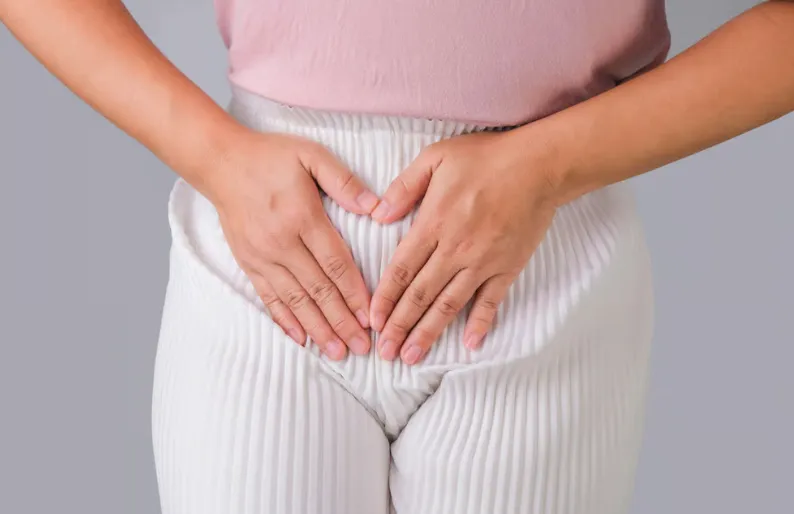"Translated to English with DeepL"
I find it incredible that in 2025 the topic of menstruation and menopause is a taboo, many times we even pretend that menopause does not exist until it hits us in the face and the truth is the most normal thing in the world is a biological process that women go through and yet these issues often make us ashamed. The more I read and research I realize the damage that this silence causes, my mom has never told me about the symptoms she went through when she went through menopause, beyond the hot flashes, but from what I have read I realize that there are many more things and that maybe if we take care of ourselves from early on that will help us not to go through it so bad.
Me parece increíble que en 2025 el tema sobre la menstruación y la menopausia sea un tabú, muchas veces hasta fingimos que no existe la menopausia hasta que nos golpea en la cara y la verdad es lo más normal del mundo es un proceso biológico por el que pasamos las mujeres y sin embargo estos temas muchas veces nos dan vergüenza. Cuanto más leo e investigo me doy cuenta del daño que este silencio causa, mi mamá nunca me ha hablado de los síntomas que pasó cuando le vino la menopausia, más allá de los calores, pero por lo que he leído me doy cuenta que hay muchas cosas más y que si quizás nos cuidamos desde temprano eso nos ayude a no pasarlo tan mal.
I'm going to start with menstruation because where else, there is research that shows that women with positive attitudes towards menstruation have better overall reproductive health experiences and the worst thing is that we are always ashamed of this and when this happens we are less likely to seek medical help for menstrual problems, which means that conditions like endometriosis can go undiagnosed for years, I read that according to the time it takes to diagnose endometriosis is eight years and this translates into eight years of suffering for women because there are women who think that menstrual pain is something they have to endure and no, it is not like that it is not normal and if you think about it, by hiding these issues we are making young women feel bad about their bodies from the moment they reach puberty. Imagine when you get your period and you work or exercise, you feel weird and of course you don't even want to get out of bed, especially if your boss is a man hahaha.
Voy a empezar por la menstruación porque por donde más, hay investigaciones que demuestran que las mujeres con actitudes positivas hacia la menstruación tienen mejores experiencias generales de salud reproductiva y lo peor es que siempre nos avergonzamos de esto y cuando esto pasa es menos probable de que busquemos ayuda médica para los problemas menstruales, lo que significa que enfermedades como la endometriosis pueden estar sin diagnosticar durante años, leí que según el tiempo que tardan en diagnosticar la endometriosis es de ocho años y esto se traduce en ocho años de sufrimiento para las mujeres porque hay mujeres que piensan que el dolor menstrual es algo que tienen que soportar y no, no es así no es normal y si te pones a pensar escondiendo estos temas estamos haciendo que las jóvenes se sientan mal con su cuerpo desde el momento en que llegan a la pubertad. Imagínate cuando te viene el periodo y trabajas o haces ejercicio, te sientes una cosa rara y por supuesto no quieres ni salir de la cama, más si tu jefe es hombre jajaja.
And what can I tell you about menopause, it hasn't touched me yet but if menstruation is talked about in hushed tones, menopause is practically erased from the public conversation until women are right in the middle of it. What I have read about this is that most women going through menopause feel unprepared for what is happening to their bodies and I am talking about practically living with this phase for the third of our lives and the education and support around this is nil. There is more talk about men going bald than about the whole hormonal disaster that women have to go through with menopause, the hot flashes, the night sweats and all the other symptoms that can completely alter a woman's life for years. Also that there is a lot of discrimination in the workplace because women who have experience leave their careers early because they can't cope with the symptoms of menopause without any support from their bosses or peers and I think that wonderful potential can be lost just because we can't have honest conversations about what women's bodies go through. These are not women who have suddenly become incompetent but women who are dealing with hormonal changes that affect everything from sleep to cognitive function and instead of support they have to choose between their health and their careers.
Y que te digo de la menopausia, todavía no me ha tocado pero si de la menstruación se habla en voz baja, la menopausia está prácticamente borrada de la conversación pública hasta que las mujeres están justo en medio de ella. Lo que he leído sobre esto es que la mayoría de las mujeres que atraviesan la menopausia no se sienten preparadas para lo que les está ocurriendo a sus cuerpos y estoy hablando de que prácticamente viviremos con esta fase el tercio de nuestras vidas y la educación y el apoyo en torno a esto es nulo. Se habla más de cuando los hombres se quedan calvos que de todo el desastre hormonal que tiene que pasar la mujer con la menopausia, de los calorones, los sudores por la noche y todos los demás síntomas que pueden alterar por completo la vida de una mujer durante años. Además que hay mucha discriminación en lo laboral porque mujeres que tienen experiencia dejan sus carreras antes de tiempo porque no pueden hacer frente a los síntomas de la menopausia sin ningún tipo de apoyo por parte de sus jefes o compañeros y yo creo que se puede perder potencial maravilloso solo porque no podemos mantener conversaciones sinceras sobre lo que sufren los cuerpos de las mujeres. No se trata de mujeres que de repente se hayan vuelto incompetentes sino de mujeres que se enfrentan a cambios hormonales que afectan a todo, desde el sueño hasta la función cognitiva y en lugar de brindarle apoyo tienen que elegir entre su salud y su carrera profesional.
One thing that surprised me quite a bit from what I read about these issues is that women who had positive attitudes toward menstruation will view menopause as a natural and positive phase, while those who struggled with menstrual shame often go through menopause with anxiety and fear, I don't know how it will be for me, the truth is that I see my menstruation as something normal and I don't hide it, but I do feel bad every time it comes, my pains are horrible, I feel like crying and I don't know why, I feel like eating a lot of chocolate, I just hope that my menopause will be calm and that I won't suffer from heat, dryness or osteoporosis.
Hay algo que me sorprendió bastante de lo que leí sobre estos temas y es que las mujeres que tuvieron actitudes positivas hacia la menstruación van a ver la menopausia como una fase natural y positiva, mientras que las que lucharon contra la verguenza menstrual a menudo pasan la menopausia con ansiedad y temor, no sé como me vaya a tocar a mí la verdad mi menstruación la veo como algo normal y no me oculto pero si me siento mal cada vez que me viene, mis dolores son horribles, me dan ganas de llorar y no sé porque, me dan ganas de comer mucho chocolate solo espero que mi menopausia sea tranquila y no sufra de calor, resequedad o de osteoporosis.
When women cannot talk openly about what they are going through, they end up feeling isolated and that they are abnormal and I think this is something that can worsen anxiety and depression, I have heard from many women because I have friends of my mom's age who have talked to me about menopause, well they are two friends not many but they have told me that the dryness is horrible and that they also suffered from mood swings and sleep disorders before menopause came and they didn't know what they were going through, one was even prescribed a medication for depression please what madness was that she was going to be menopausal, just that. I think we should have more access to information and that there should be support networks where these issues are addressed, where a woman's body is treated as something normal and not as something problematic.
Cuando las mujeres no pueden hablar abiertamente de lo que están pasando, se terminan sintiendo aisladas y que son anormales y yo creo que esto es algo que puede empeorar la ansiedad y la depresión, he escuchado de muchas mujeres porque tengo amigas de la edad de mí mamá que si me han hablado algo de la menopausia, bueno son dos amigas no son muchas pero me han dicho que la resequedad es horrible y que también sufrieron de cambios de humor y de trastornos del sueño antes de que llegara la menopausia y no sabían lo que estaban pasando, a una hasta le recetaron un medicamento para la depresión por favor que locura era que iba a quedar menopáusica, solo eso. Yo creo que deberíamos tener más acceso a la información y que deberían existir redes de apoyo donde se traten estos temas, donde se trate el cuerpo de la mujer como algo normal y no como algo problemático.
I think what bothers me most about all this is that much of this suffering is avoidable, as it's not a rare disease or anything complex that takes specialized treatment, it's just a normal process that could be much easier to manage if this was talked about openly and we received the right support. It's not rocket science, we just need to completely rethink the way we talk about women's reproductive health and not treat these issues as something to be ashamed of just normalize it as part of common health conversations, instead of expecting women to suffer in silence, I think one of the things that can be done is to start at school, I remember that when I was teaching in high school I taught natural sciences and biology in the program this topic appeared and none of the students had been given it, I think that many times we see that it is a difficult topic to talk about but we do not realize how necessary it is, that is why I insist that schools can be a start and begin to have open and regular conversations because something that is certain is that silence has never solved anything.
Creo que lo que más me molesta de todo esto es que gran parte de este sufrimiento se puede evitar, ya que no es una enfermedad rara ni nada complejo que lleve un tratamiento especializado, solo es un proceso normal que podría ser mucho más fácil de manejar si se hablara de esto abiertamente y recibiéramos el apoyo adecuado. No es ninguna ciencia espacial, solo hay que replantearse por completo la forma de hablar sobre la salud reproductiva de las mujeres y no tratar estos temas como si fuera algo de que avergonzarse solo normalizarlo como parte de las conversaciones comunes sobre salud, en vez de esperar que las mujeres sufran en silencio, yo creo que una de las cosas que se puede hacer es comenzar desde la escuela, recuerdp que cuando estuve dando clases en bachillerato daba ciencias naturales y biología en el programa aparecía este tema y a ninguno d los estudiantes se lo habían dado, creo que muhcas veces vemos que es un tema difícil de hablar pero no nos damos cuenta de lo necesario que es, por eso insisto desde los colegios puede ser un comienzo y empezar a tener conversaciones avbiertas y regulares porque algo que si es cierto es que el silencio nunca ha resuelto nada.



